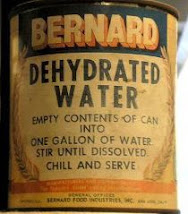[ This post has been saved here: http://archive.is/HkJJ0 ]
This was a question on the 'Yahoo! Answers' website recently :-
"If something happens to Saturn like it explodes or something, will it affect Earth?"
Link to Yahoo! page
It reminded me of the type of question we used to get on the '2012hoax.org' forum leading up to the infamous date in December 2012 when doom was supposed to happen. Many of the questions were asked by young people who had been reading websites and Facebook pages, and watching videos, made by the trolls and doom merchants. Those people still occasionally make idiotic claims that have zero evidence to back them up, and are not in the least bit plausible, and are not based in any sort of scientific fact.
There are many young people in the world who tend to believe those silly claims without stopping to think if there is any proof or evidence, or checking to see if there is a track record of similar false claims made by those writers, speakers, and video makers.
In September 2012, I wrote this paragraph in case it helped with the problem :-
"Would you believe me if I made a wild claim that a huge, very deep hole
five miles across is going to appear in the South Island of New Zealand
on May 30 next year? Would it make any difference to you if I said that
the May 30 date is when the ancient
Martian calendar ends one cycle and starts another? …. Since I haven't
said how or why that is possible I hope you won't just assume that I am
correct. Most people need some proof, or evidence, that backs up these
wild claims. Otherwise, I could say something like: "I've found a new
species of apple tree that has the apples falling upwards!" and everybody
would believe me without question."
I also wrote this at the end of a blog post called: Just Another Day in December :-
"Because we know all of these things, we have no reason to believe
what any trolls or doom-merchants try to suggest. We can definitely
reject their crazy claims with science, statistics, and common sense. In
fact, we know there is absolutely zero scientific evidence to backup
any of their idiotic, worthless claims. So it isn't surprising that in
four or more years they haven't changed that fact. The take-home-lesson
is: 'Just saying it doesn't make it true', especially if the doomsayer
is likely to make a profit out of the doom saying.
Pick *any day in December. It will be Just Another Day."
In case you were wondering, this was my response on the 'Yahoo! Answers' website :-
(Note that the phrase 'extremely unlikely' really means 'it isn't going to happen'. Planets don't just explode without any external influences like collisions with other planets. At least not in our very stable solar system that is several *billions of years old, in a safe area of the Galaxy.)
- - - - - - - - - - - - - - - - - - - -
Let's say that something does happen to Saturn. Maybe it does 'explode
or something' (though we realize that is extremely unlikely). First we
would need to say just how far away from the Earth it is.
For convenience, the distance from the Sun to the Earth is called: one
Astronomical Unit (AU). Saturn is a further 9 AU away, or a total of
about 10 AU from the Sun. If you consider that the Earth is at 93
million miles or 150 million kilometers from the Sun, Saturn is an
*enormous distance away! Between the Earth and Saturn there is lots of
space for Mars, the asteroid belt, and the biggest planet Jupiter.
So what is Saturn made of? Saturn is called a gas giant, but it is not
entirely gaseous. It is thought that the interior of Saturn is similar
to that of Jupiter, having a small rocky core surrounded by hydrogen and
helium. If we pretend that it has disintegrated there would be *lots of
gas and a small amount of rock (and some dirty ice from the rings). The total mass would be the same as an
intact planet, so it is logical to assume that most of the disintegrated
materials would continue to orbit the Sun in roughly the same orbit as
the intact planet. If the disintegration was violent enough some of the
rock might be ejected away from the other material. However, that
wouldn't concern us because of the enormous distance from Earth, the
small amount of rock, the dispersal being a possible 360 degrees in
every direction, and the presence of Jupiter between us and Saturn.
It is fortunate for us that there is a planet in the Solar System the
size of Jupiter. (It is 318 times bigger than Earth!) There is evidence
that Jupiter has enough gravity to attract many of the space rocks and
comets that get close to it. It has been called the Solar System's
vacuum cleaner.
So we don't need to worry that the Earth might be affected in any way by anything that might happen to Saturn.
- - - - - - - - - - - - - - - - - - - -
Update:
I just found this article, dated July 19, 2012, in the 'Weekly World News' :-
Saturn Ready To Explode
Weekly World News is a humorous publication that uses parody and spoof articles, as you can see in this short list :-
~ Putin Will Run For President of U.S. in 2016!
~ President Obama Gets a Tattoo (a picture of his own face!)
~ Watching Super Bowl Causes Impotence
~ 'Toy Story 4' Will Be Rated R
There is also an older article in 'The Spoof', dated March 19, 2010 :-
Saturn Will Explode Tomorrow
It is obvious what kind of publication it is. Apart from its name, there is also this sentence: "Always there with the funniest spoof headlines."
...
Wednesday, January 29, 2014
Subscribe to:
Posts (Atom)







